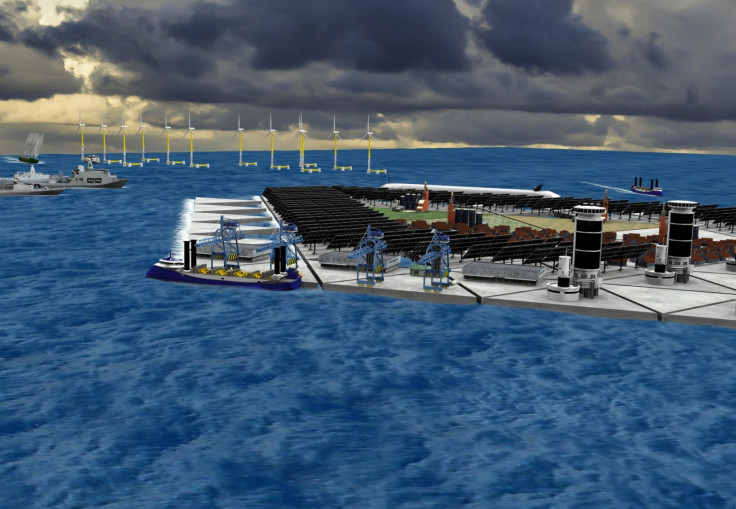Dutch plan to build floating mile-long mega islands to create more space
Ambitious project proposed to help alleviate growing population problem.

As populations rise the search for more land is leading the Dutch once again to water with plans for floating mega cities, parks and farms being drawn up as a solution for the future.
Within two decades the sight of a metropolis bobbing on a body of water may be commonplace in the Netherlands – the country already famous for pioneering land reclamation from the sea – as researchers unveil a model showing how the idea would work.
Constructed of 87 differently sized floating triangles made from concrete or steel, the sections would be built to withstand ocean movement with the articulated triangles able to absorb waves without the whole structure moving.
The flexible island would span over 1.6km (1 mile), cover three square kilometres and would be secured to the ocean floor, enabling it to be used for accommodation, a sea port, agricultural land or a recreational park.
"Some cities are starting to look into floating solutions, like a floating park on the river for example, where they want to have an area for recreation close by the city centre," Olaf Waals from the Maritime Research Institute of the Netherlands (MARIN) told AFP.
The research team demonstrated a scale model of the proposed project using an eight-metre long wood and polystyrene version, which was placed in a large tank of water that simulated how it would cope with wind, waves and storms.
The decision to look towards floating land projects rather than continue with the reclamation techniques the Netherlands is already familiar with boils down to changing environmental and economic factors – including rising sea levels which would make the process more difficult.
"In these times of rising sea levels, overpopulated cities and a rising number of activities on the seas, building up the dykes and pumping out the sands is perhaps not the most efficient solution," said Waals.
At this stage the project remains in its infancy with further testing, development and planning required, as well as potential investors. How the mega islands would be powered (potentially solar or off-shore wind) and how its presence would affect marine life are questions still being asked.
According to Dutch news publication the Daily Telegraaf, discussions are underway for a potential site for the floating islands near the crowded city of Amsterdam in order to open up more space, however it's still very early days and residents shouldn't start contacting their estate agents just yet.
Perhaps Peter Thiel, the PayPal millionaire who dreams of creating a lawless island, could be an early investor.
© Copyright IBTimes 2024. All rights reserved.






